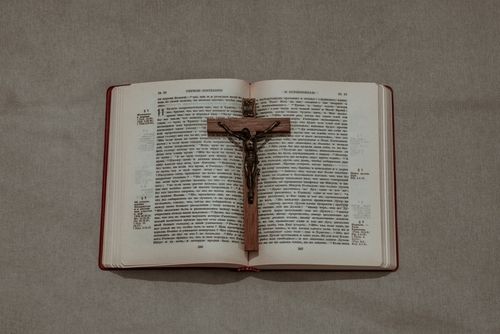 Exorcism, a religious procedure aimed at evicting demons or evil spirits from individuals believed to be possessed, has a long and complex history within the Catholic Church. This practice, rooted in biblical accounts and deep spiritual beliefs, has evolved over centuries from the early days of Christianity to the modern era. This blog explores the rich history of exorcisms within the Catholic tradition, highlighting key developments and the role of exorcism in the church today.
Exorcism, a religious procedure aimed at evicting demons or evil spirits from individuals believed to be possessed, has a long and complex history within the Catholic Church. This practice, rooted in biblical accounts and deep spiritual beliefs, has evolved over centuries from the early days of Christianity to the modern era. This blog explores the rich history of exorcisms within the Catholic tradition, highlighting key developments and the role of exorcism in the church today.
Early Christian Practices and the New Testament Foundation
The practice of exorcism in the Catholic Church is primarily derived from the New Testament, where Jesus Christ is depicted as casting out demons as part of His ministry. The Gospels of Matthew, Mark, and Luke provide numerous accounts of Jesus performing exorcisms, establishing a biblical basis that endorsed the continuation of this practice among His followers. In the early Church, exorcisms were commonly performed by many Christians, not just by clergy, as part of the broader struggle against demonic forces.
Formalization of Exorcism in the Medieval Church
As the influence of Christianity spread throughout Europe, the practice of exorcism became more formalized within the Catholic Church. By the medieval period, the authority to perform exorcisms was restricted to ordained priests and bishops. The Church developed liturgical rites and prayers specifically for the purpose of exorcism, the most famous of which was included in the Roman Ritual (Rituale Romanum) of 1614. This text laid down specific prayers and practices for exorcism, reflecting the Church's attempt to regulate and standardize the process across its global influence.
The Witch Trials and the Height of Exorcism Fears
During the Renaissance and through the Reformation period, Europe was engulfed by a heightened fear of witchcraft and demonic possession. This era saw an increase in the number of exorcisms, as well as in the severity of the methods employed. The witch trials across Europe, notably in places like Germany, France, and England, were often preceded by exorcistic rites, reflecting a dark period where superstition and fear could lead to tragic outcomes for the accused.
The Age of Enlightenment and Skepticism
The Age of Enlightenment brought about a shift in attitudes towards exorcisms within the Catholic Church. Intellectuals and theologians began to view demonic possession with more skepticism, attributing many cases to mental illness rather than supernatural causes. This period led to a decline in the number of exorcisms performed and marked a shift towards a more psychological understanding of phenomena previously attributed to demonic activity.
The Modern Renewal of Exorcism
In the late 20th and early 21st centuries, there has been a resurgence of interest in exorcism within the Catholic Church, partly due to increased media attention and the popularity of horror films depicting exorcisms. In response, the Vatican in 1999 revised the exorcism rites included in the Roman Ritual, updating the guidelines and prayers to be more aligned with contemporary theological understanding and pastoral care. This renewal also included better training for exorcists, emphasizing discernment and collaboration with medical professionals.
Exorcism Today: Practice and Controversy
Today, exorcism remains a part of Catholic practice but is approached with caution and skepticism within the Church itself. The Vatican has reiterated that true cases of demonic possession are very rare, and the church requires that all potential cases undergo thorough investigation, including medical and psychiatric evaluation, before an exorcism is considered. Contemporary exorcists are trained to distinguish between mental illness and genuine possession, reflecting an approach that attempts to balance traditional religious practice with modern scientific understanding.
The Continuing Role of Exorcism in the Catholic Church
The history of exorcism in the Catholic Church is a testament to the complex interplay between faith, fear, and the understanding of human psychology. From its roots in the early Christian tradition to its formalization in the medieval period, and through the skepticism of the Enlightenment to the modern-day practices, exorcism has continually evolved. While today it is treated with more caution and surrounded by rigorous checks and balances, the practice of exorcism remains a fascinating and enduring aspect of Catholic faith and ritual, embodying the ongoing human quest to understand and confront the presence of evil in the world.



